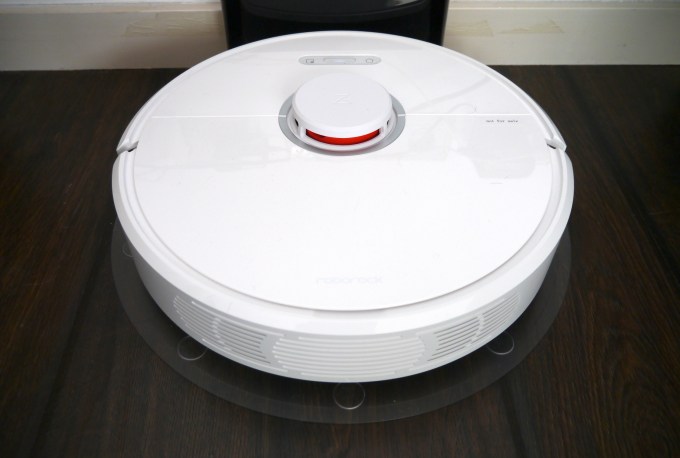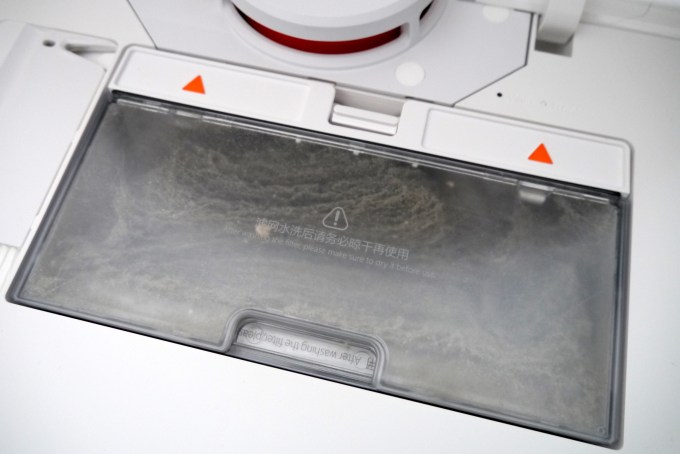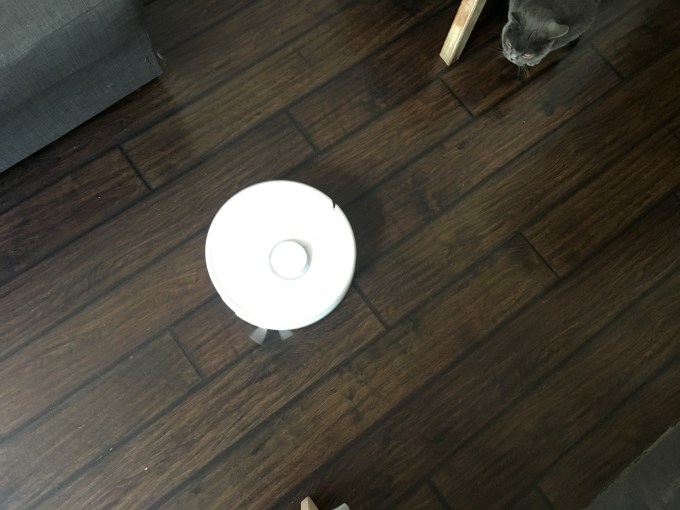If you’ve flirted with the idea of buying a robot vacuum you may also have stepped back from the brink in unfolding horror at the alphabetic soup of branded discs popping into view. Consumer choice sounds like a great idea until you’ve tried to get a handle on the handle-less vacuum space.
Amazon offers an A to Z linklist of “top brands” that’s only a handful of letters short of a full alphabetic set. The horror.
What awaits the unseasoned robot vacuum buyer as they resign themselves to hours of online research to try to inform — or, well, form — a purchase decision is a seeming endless permutation of robot vac reviews and round-ups.
Unfortunately there are just so many brands in play that all these reviews tend to act as fuel, feeding a growing black hole of indecision that sucks away at your precious spare time, demanding you spend more and more of it reading about robots that suck (when you could, let’s be frank, be getting on with the vacuuming task yourself) — only to come up for air each time even less convinced that buying a robot dirtbag is at all a good idea.
Reader, I know, because I fell into this hole. And it was hellish. So in the spirit of trying to prevent anyone else falling prey to convenience-based indecision I am — apologies in advance — adding to the pile of existing literature about robot vacuums with a short comparative account that (hopefully) helps cut through some of the chaff to the dirt-pulling chase.
Here’s the bottom line: Budget robot vacuums that lack navigational smarts are simply not worth your money, or indeed your time.
Yes, that’s despite the fact they are still actually expensive vacuum cleaners.
Basically these models entail overpaying for a vacuum cleaner that’s so poor you’ll still have to do most of the job yourself (i.e. with a non-robotic vacuum cleaner).
It’s the very worst kind of badly applied robotics.
Abandon hope of getting anything worth your money at the bottom end of the heap. I know this because, alas, I tried — opting, finally and foolishly (but, in my defence, at a point of near desperation after sifting so much virtual chaff the whole enterprise seemed to have gained lottery odds of success and I frankly just wanted my spare time back), for a model sold by a well-known local retailer.
It was a budget option but I assumed — or, well, hoped — the retailer had done its homework and picked a better-than-average choice. Or at least something that, y’know, could suck dust.
The brand in question (Rowenta) sat alongside the better known (and a bit more expensive) iRobot on the shop shelf. Surely that must count for something? I imagined wildly. Reader, that logic is a trap.
I can’t comment on the comparative performance of iRobot’s bots, which I have not personally tested, but I do not hesitate to compare a €180 (~$200) Rowenta-branded robot vacuum to a very expensive cat toy.
This robot vacuum was spectacularly successful at entertaining the cat — presumably on account of its dumb disposition, bouncing stupidly off of furniture owing to a total lack of navigational smarts. (Headbutting is a pretty big clue to how stupid a robot it is, as it’s never a stand-in for intelligence even when encountered in human form.)
Even more tantalizingly, from the cat’s point of view, the bot featured two white and whisker-like side brushes that protrude and spin at paw-tempting distance. In short: Pure robotic catnip.
The cat did not stop attacking the bot’s whiskers the whole time it was in operation. That certainly added to the obstacles getting in its way. But the more existential problem was it wasn’t sucking very much at all.
At the end of its first concluded ‘clean’, after it somehow managed to lurch its way back to first bump and finally hump its charging hub, I extracted the bin and had to laugh at the modest sized furball within. I’ve found larger clumps of dust gathering themselves in corners. So: Full marks for cat-based entertainment but as a vacuum cleaner it was horrible.
At this point I did what every sensible customer does when confronted with an abject lemon: Returned it for a full refund. And that, reader, might have been that for me and the cat and robot vacs. Who can be bothered to waste so much money and time for what appeared laughably incremental convenience? Even with a steady supply of cat fur to contend with.
But as luck would have it a Roborock representative emailed to ask if I would like to review their latest top-of-the-range model — which, at €549, does clock in at the opposite end of the price scale; ~3x the pitiful Rowenta. So of course I jumped at the chance to give the category a second spin — to see if a smarter device could impress me and not just tickle the cat’s fancy.
Clearly the price difference here, at the top vs the bottom of the range, is substantial. And yet, if you bought a car that was 3x times cheaper than a Ferrari you’d still expect not just that the wheels stay on but that it can actually get you somewhere, in good time and do so without making you horribly car sick.
Turns out buyers of robot vacuums need to tread far more carefully.
Here comes the bookending top-line conclusion: Robot vacuums are amazing. A modern convenience marvel. But — and it’s a big one — only if you’re willing to shell out serious cash to get a device that actually does the job intended.

Roborock S6: It’s a beast at gobbling your furry friend’s dander
Comparing the Roborock S6 and the Rowenta Smart Force Essential Aqua RR6971WH (to give it its full and equally terrible name) is like comparing a high-end electric car with a wind-up kid’s toy.
Where the latter product was so penny-pinching the company hadn’t even paid to include in the box a user manual that contained actual words — opting, we must assume, to save on translation costs by producing a comic packed with inscrutable graphics and bizarro don’t do diagrams which only served to cement the fast-cooling buyer’s conviction they’d been sold a total lemon — the Roborock’s box contains a well written paper manual that contains words and clearly labeled diagrams. What a luxury!
At the same time there’s not really that much you need to grok to get your head around operating the Roborock. After a first pass to familiarize yourself with its various functions it’s delightfully easy to use. It will even produce periodic vocal updates — such as telling you it’s done cleaning and is going back to base. (Presumably in case you start to worry it’s gone astray under the bed. Or that quiet industry is a front for brewing robotic rebellion against indentured human servitude.)
One button starts a full clean — and this does mean full thanks to on-board laser navigation that allows the bot to map the rooms in real-time. This means you get methodical passes, minimal headbutting and only occasional spots missed. (Another button will do a spot clean if the S6 does miss something or there’s a fresh spill that needs tidying — you just lift the bot to where you want it and hit the appropriate spot.)
There is an app too, if you want to access extra features like being able to tell it to go clean a specific room, schedule cleans or set no-go zones. But, equally delightfully, there’s no absolute need to hook the bot to your wi-fi just to get it to do its primary job. All core features work without the faff of having to connect it to the Internet — nor indeed the worry of who might get access to your room-mapping data. From a privacy point of view this wi-fi-less app-free operation is a major plus.
In a small apartment with hard flooring the only necessary prep is a quick check to clear stuff like charging cables and stray socks off the floor. You can of course park dining chairs on the table to offer the bot a cleaner sweep. Though I found the navigation pretty adept at circling chair legs. Sadly the unit is a little too tall to make it under the sofa.
The S6 includes an integrated mopping function, which works incredibly well on lino-style hard flooring (but won’t be any use if you only have carpets). To mop you fill the water tank attachment; velcro-fix a dampened mop cloth to the bottom; and slide-clip the whole unit under the bot’s rear. Then you hit the go button and it’ll vacuum and mop in the same pass.
In my small apartment the S6 had no trouble doing a full floor clean in under an hour, without needing to return to base to recharge in the middle. (Roborock says the S6 will drive for up to three hours on a single charge.)
It also did not seem to get confused by relatively dark flooring in my apartment — which some reviews had suggested can cause headaches for robot vacuums by confusing their cliff sensors.
After that first clean I popped the lid to check on the contents of the S6’s transparent lint bin — finding an impressive quantity of dusty fuzz neatly wadded therein. This was really just robot vacuum porn, though; the gleaming floors spoke for themselves on the quality of the clean.

The level of dust gobbled by the S6 vs the Rowenta underlines the quality difference between the bottom and top end of the robot vacuum category.
So where the latter’s plastic carapace immediately became a magnet for all the room dust it had kicked up but spectacularly failed to suck, the S6’s gleaming white shell has stayed remarkably lint-free, acquiring only a minimal smattering of cat hairs over several days of operation — while the floors it’s worked have been left visibly dust- and fur-free. (At least until the cat got to work dirtying them again.)
Higher suction power, better brushes and a higher quality integrated filter appear to make all the difference. The S6 also does a much better cleaning job a lot more quietly. Roborock claims it’s 50% quieter than the prior model (the S5) and touts it as its quietest robot vacuum yet.
It’s not super silent but is quiet enough when cleaning hard floors not to cause a major disturbance if you’re working or watching something in the same room. Though the novelty can certainly be distracting.
Even the look of the S6 exudes robotic smarts — with its raised laser-housing bump resembling a glowing orange cylonic eye-slot.
Although I was surprised, at first glance, by the single, rather feeble looking side brush vs the firm pair the Rowenta had fixed to its undercarriage. But again the S6’s tool is smartly applied — stepping up and down speed depending on what the bot’s tackling. I found it could miss the odd bit of lint or debris such as cat litter but when it did these specs stood out as the exception on an otherwise clean floor.
It’s also true that the cat did stick its paw in again to try attacking the S6’s single spinning brush. But these attacks were fewer and a lot less fervent than vs the Rowenta, as if the bot’s more deliberate navigation commanded greater respect and/or a more considered ambush. So it appears that even to a feline eye the premium S6 looks a lot less like a dumb toy.

Cat plots another ambush while the S6 works the floor
On a practical front, the S6’s lint bin has a capacity of 480ml. Roborock suggests cleaning it out weekly (assuming you’re using the bot every week), as well as washing the integrated dust filter (it supplies a spare in the box so you can switch one out to clean it and have enough time for it to fully dry before rotating it back into use).
If you use the mopping function the supplied reusable mop cloths do need washing afterwards too (Roborock also includes a few disposable alternatives in the box but that seems a pretty wasteful option when it’s easy enough to stick a reusable cloth in with a load of laundry or give it a quick wash yourself). So if you’re chasing a fully automated, robot-powered, end-to-cleaning-chores dream be warned there’s still a little human elbow grease required to keep everything running smoothly.
Still, there’s no doubt a top-of-the-range robot vacuum like the S6 will save you time cleaning.
If you can justify the not inconsiderable cost involved in buying this extra time by shelling out for a premium robot vacuum that’s smart enough to clean effectively all that’s left to figure out is how to spend your time windfall wisely — resisting the temptation to just put your feet up and watch the clever little robot at work.
Read Full Article
No comments:
Post a Comment